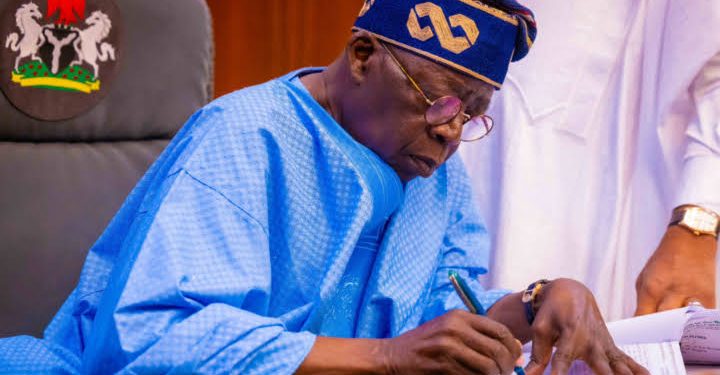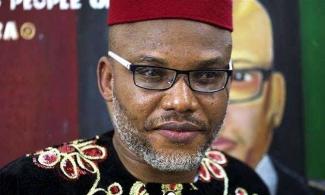Tinubu hails Naira’s recovery from ₦1,900 to ₦1,450 per dollar, says forex market has stabilized and paper trading is over.
President Bola Ahmed Tinubu has declared that Nigeria’s economy is stabilizing, pointing to a remarkable recovery in the value of the Naira against the United States Dollar. According to him, the local currency, which once traded as low as ₦1,900 to a dollar shortly after he assumed office, has now regained strength to hover around ₦1,450.
Speaking with confidence, Tinubu stressed that the foreign exchange market is no longer driven by speculative “paper trading” but is now functioning with improved transparency.
“The economy has stabilized. Nobody is trading a piece of paper for an exchange rate anymore. When I took over, it was ₦1,900 to a dollar. It’s ₦1,450 now. It’s been stabilizing there, and you don’t have to know Cardoso before you get your foreign exchange,” the President affirmed.
ALSO READ: BREAKING: Tinubu Administration Weighs Game-Changing Decision on Simon Ekpa
Naira’s Journey: From Freefall to Recovery
The Naira’s steep depreciation in 2023 and early 2024 rattled businesses, investors, and households, with many blaming policy inconsistency and market speculation. At its lowest, the currency traded above ₦1,900 per dollar, sparking fears of a financial collapse.
However, under the combined efforts of President Tinubu and Central Bank Governor Olayemi Cardoso, several reforms were introduced to restore sanity to the system. These included:
Clearing part of the foreign exchange backlog.
Cracking down on round-tripping and speculative hoarding.
Increasing dollar liquidity through partnerships with commercial banks.
Unifying exchange rates to discourage black-market dominance.
Analysts Weigh In
Economists have described the Naira’s current stability as a welcome development but cautioned that Nigeria must not relax its efforts. They argue that sustaining the gains will require addressing deeper structural issues such as:
Heavy reliance on imports.
Low non-oil export earnings.
Inflationary pressures fueled by energy and food costs.
Dr. Adeyemi Fajuyi, a financial analyst, noted that while stabilizing the Naira at ₦1,450 is commendable, “true recovery will only come when Nigeria significantly boosts local production and reduces its appetite for imports.”
The Role of Confidence in the Market
Tinubu’s assurance also reflects his administration’s attempt to rebuild investor and public confidence. The forex market thrives on trust, and government credibility is a key factor in maintaining stability.
The President’s remark that Nigerians no longer need “connections” at the Central Bank before accessing forex directly challenges the long-standing culture of favoritism and scarcity that distorted the system.
What This Means for Nigerians
For ordinary Nigerians, a stronger Naira could translate into reduced costs for imported goods, lower inflation, and improved purchasing power. However, the impact is yet to be fully felt at the retail level, as prices of food and essential commodities remain high.
Small and medium-scale businesses that rely on imported materials have also expressed cautious optimism, stating that while stability is good, the availability of dollars for transactions remains the true test.
The Road Ahead
Tinubu’s statement paints a hopeful picture, but experts insist that sustaining this “Naira comeback” will require:
Diversifying the economy beyond oil.
Attracting long-term foreign direct investment.
Ensuring policy consistency and transparency.
Expanding Nigeria’s export base, especially in agriculture and manufacturing.
The President, however, sounded confident that his administration’s reforms are working and promised that Nigeria is now on the path of economic resilience and long-term growth.

Here’s the comparison chart of the Naira vs Dollar exchange rate trend over the last 6 months, showing how the currency moved from ₦1,850 in April 2025 to about ₦1,450 in September 2025.












